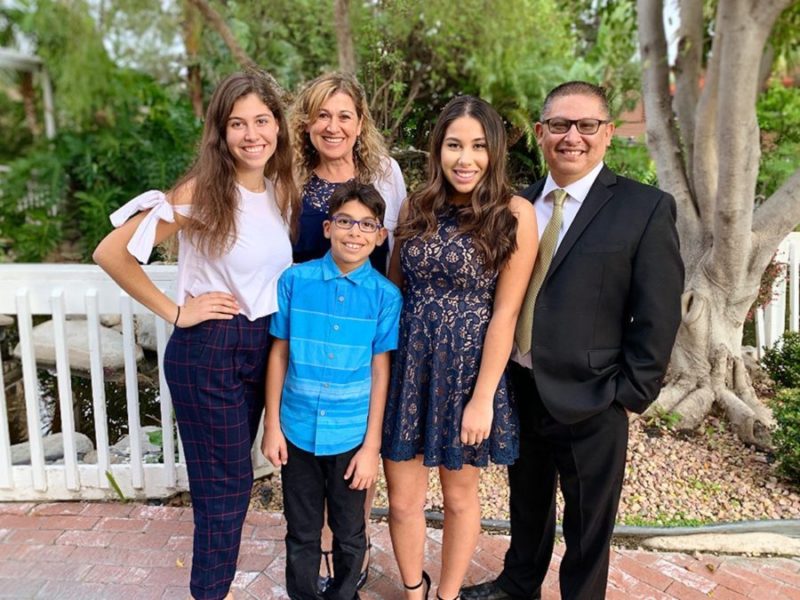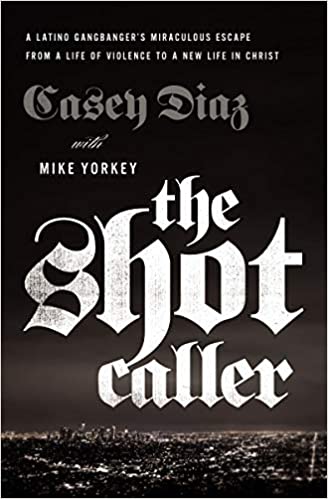Memoir of the Week: The Shot Caller by Casey Diaz
- Home
- Memoir Ghostwriting
- The Shot Caller by Casey Diaz with Mike Yorkey
For too many years, Christian memoirs have been written with the sympathies of the readers more in mind than the experiences of the writer. The gritty details of the mean-streeted lives are usually elided, deleted, glossed over, watered down, or whatever euphemism you want to use to describe the trouble, the abuse, or the crime some authors have dealt with. Admittedly, the dark places we reach before the light of Christ comes into our lives can be traumatic to talk about.
Casey Diaz’s memoir, Shot Caller, pulls no such punches. This is a bare-knuckle read. It would be impossible to tell it any other way. Diaz does not mince words describing his violent acts. His description of his anger, rebellion, rejection, and the travails of a broken boy growing up in a broken home will wrench your heart. I for one can certainly empathize with what happened next, a young man looking for affirmation finds his acceptance in street thugs–who jump him into their gang. Acceptance comes through being the most violent, the one others fear, and it’s not long before all semblance of the boundaries of human compassion and respect for life vanished from his conscience. His viciousness has a hair-trigger. It can snap at any moment. And it does. This is not a fluffy story.
It’s a wonder he survived to reach his sixteenth birthday. The boy that jumped him in, the one Casey looked up to, died in a drive-by. Incarcerated at the age when most boys are just getting the freedom to drive, Casey ends up the big shot behind bars, the Shot Caller, the one others follow in jail, the one who decides who lives and dies. Heavy stuff for a young kid. Saddled with that reputation, he’s transferred to a high-security prison in Northern California where he’s immediately placed in solitary confinement.
Alone. In a dark cement cubical, he only sees the light one hour a day–oh how the mighty have fallen. He won’t see it this way until later his life, but that dark cell is the biggest act of grace God or man could grant him. He’s restrained. He’s boxed in, cut off from every human voice. He is out of sight and all but forgotten by the prison system. He is beyond the reach of anyone who could help him.
But it just so happens that a black church women, who had ridden a bus all day from San Pedro to minister to convicts, came into Casey’s unit. He could hear her voice down the hall. But his cell is at the far end. No one goes down that far except to drop off a food tray. Casey hears her ask, “Who’s down there?” He hears the guard tell her to forget that boy, he’s beyond help. But she comes to his door anyway and speaks a few chosen words to him.
Look, I’m not going to spoil the rest of the story. You need to pick up a copy and read it. But if you’re familiar with St. Augustine’s Confessions, there’s a moment of despair when he’s sitting in the garden contemplating his depressing life, when he hears the voice from over the wall, “Pick up the book.” And there next to him is a New Testament on the bench. He opens it up and reads that famous passage in Romans. Or Anne Lamott’s description of Jesus showing up in her room in Traveling Mercies.
If you enjoy stories of grace and redemption, and even if you don’t, this is a worthy read. It’s one you can pass along to your friends and family. It’s a testimony of two people. One is the faithful churchwoman who came regularly to the jail and spoke the words of grace at the right moment to the right person. And the second is Casey who responded, and God lifted him out of that dark hole and gave him a new family.
 Today he is a responsible adult, a pastor, a parent, and a husband. A word about his co-author, Mike Yorkey. I’ve had the opportunity to get to know Mike, a wonderful writer and a generous man. He helped Casey write the book over a two year period, and did a fantastic job.I hope you’re able to read it and enjoy it. It’s worth the effort.
Today he is a responsible adult, a pastor, a parent, and a husband. A word about his co-author, Mike Yorkey. I’ve had the opportunity to get to know Mike, a wonderful writer and a generous man. He helped Casey write the book over a two year period, and did a fantastic job.I hope you’re able to read it and enjoy it. It’s worth the effort.

